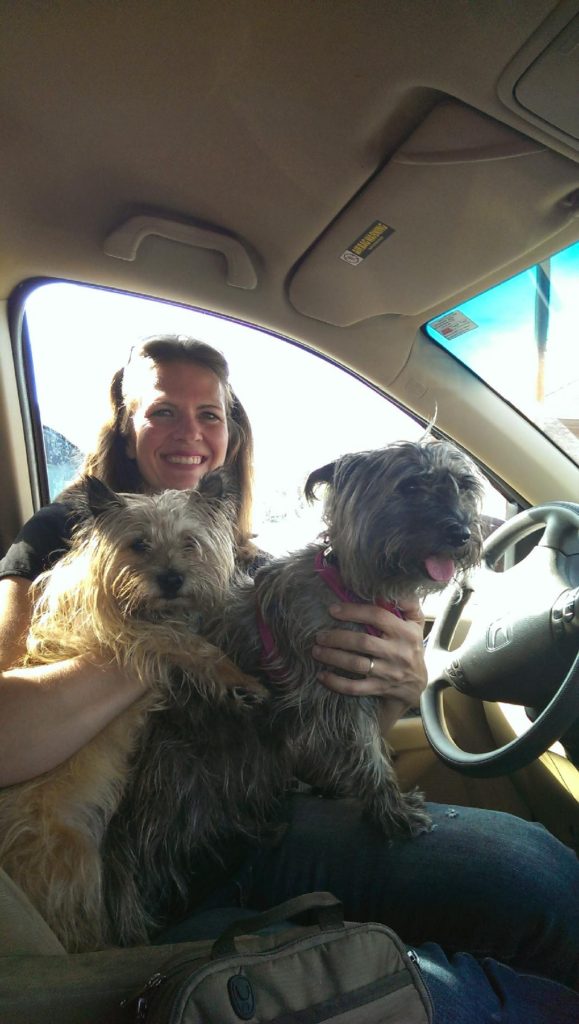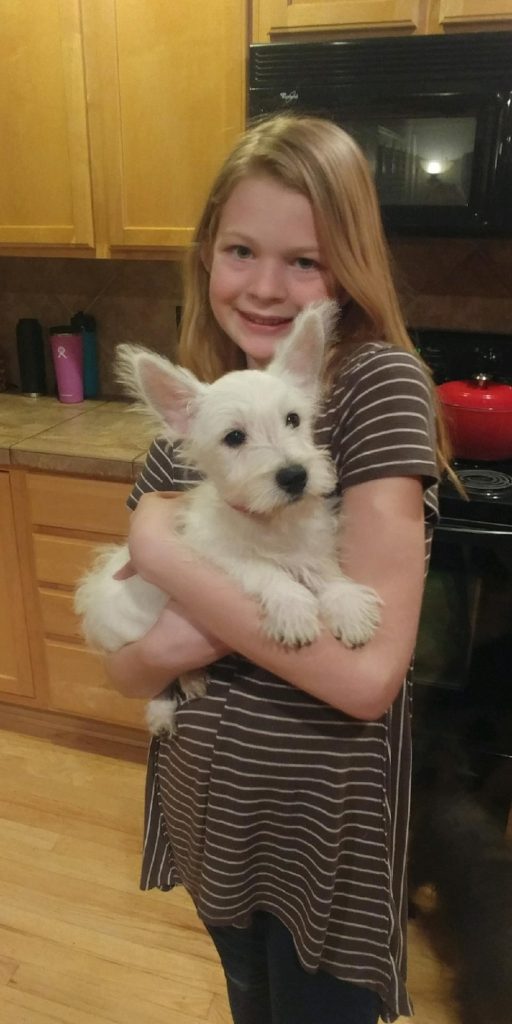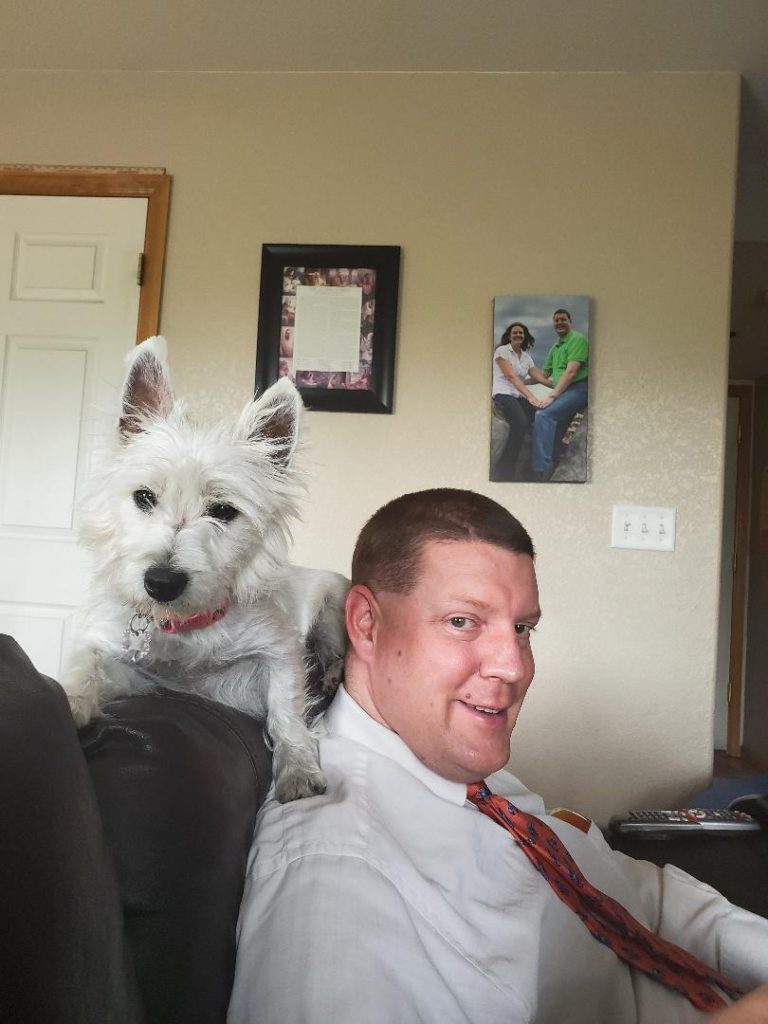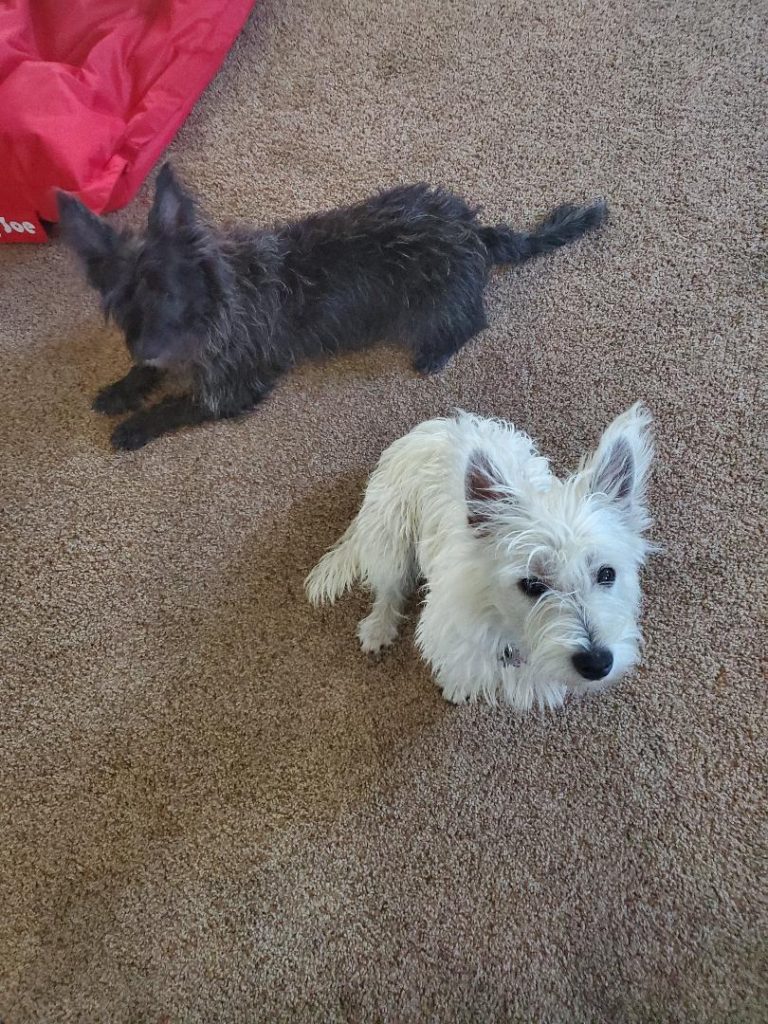 Anyone who has a pet knows the love and joy they bring into your life. I have pet dogs, and I love them. Other people have cats, horses, birds, or any other number of animals that they love. My dogs are always happy to see me when I come home, and make sure to greet me at the door. My newest puppy, Harper, will bite at my pant legs to let know I have not greeted her properly, and she is always concerned that nobody is left behind. She knows her pack – her family – and is worried if none of us are doing OK. Pets have an amazing ability to calm us, to provide unconditional love, and generally make life happier.
Anyone who has a pet knows the love and joy they bring into your life. I have pet dogs, and I love them. Other people have cats, horses, birds, or any other number of animals that they love. My dogs are always happy to see me when I come home, and make sure to greet me at the door. My newest puppy, Harper, will bite at my pant legs to let know I have not greeted her properly, and she is always concerned that nobody is left behind. She knows her pack – her family – and is worried if none of us are doing OK. Pets have an amazing ability to calm us, to provide unconditional love, and generally make life happier.
I realize that not everyone is a pet owner, or an animal lover. For those who dislike animals, the following information may not be all that applicable to you, but for those who do love their pets, please read on!
I have outlived all of my pets. All of the dogs I knew growing up are gone, and the dogs I have now are my friends. I did lose the first dog my wife and I owned in January, 2019, and anyone who has lost a pet knows how hard that can be. I am relatively young, but I have many elderly clients who may not outlive their pet. Whether it is a service dog, an emotional support pet, a companion pet, or just a pet you have because you love animals, you want to make sure your pet is cared for, even if you cannot be the one to care for the pet if you are gone.
How can you care for a pet if you are gone?
I am glad you asked!
You can’t leave money outright to a pet under Colorado law, but you can create a trust for your pet. The trust can hold money that will pay for the pet’s care, and provide for what happens to the money after you pet passes on. You can determine who will care for your pet after you are gone, since you know who will care for your pet with the same level of care you have shown the pet. You can show your love for your pet even though you are not there, and even dictate what happens to the pet when it passes on. Your love and care continues for your pet, even after you can no longer personally provide the care.
What is a Pet Trust, and How Do I Set One Up?
 A pet trust is a legal structure that you can set up in your will, or as part of your living trust, that will hold onto your assets once you pass away and direct that those assets be used to care for your pet after your death. A pet trust can last for 21 years under Colorado law, so pet trust are really good for dogs, cats, birds, mice, rats, and other similar pets. Some people who have horses, or other animals that may live beyond 21 years past their owners’ death, may need to structure things a bit differently, but you still can create a trust to care for your pet.
A pet trust is a legal structure that you can set up in your will, or as part of your living trust, that will hold onto your assets once you pass away and direct that those assets be used to care for your pet after your death. A pet trust can last for 21 years under Colorado law, so pet trust are really good for dogs, cats, birds, mice, rats, and other similar pets. Some people who have horses, or other animals that may live beyond 21 years past their owners’ death, may need to structure things a bit differently, but you still can create a trust to care for your pet.
As with any trust, you will want to name a trustee who will use the money to care for your pet. You want to choose this person carefully, as they will be in charge of properly using money for your pet. The trustee should be someone who cares for the pet in a similar manner that you have. To illustrate, when Leona Helmsley died, she left $12 Million to her dog named “Trouble.” This amount was later reduced because disinherited grandchildren challenged the bequest, but $2 Million was still left for the care of the dog. Trouble was a white Maltese that lived to the age of 12, and died recently. Because of the amount of money left to the dog, several threats were made on the life of the dog, and the dog needed a security guard while it was alive. The right people were needed to carry out the wishes of caring for the dog until the dog passed away.
Not everyone has $12 Million to leave to a dog, as not all of us are billionaires like Leona Helmsley was. However, we can certainly leave more modest sums to care for our pets for food, grooming, veterinary care, toys, and other things pets need, if caring for your pets is something you want to do in your estate plan.
Who Will Care for the Pet? With a Pet Trust, You Can Pick!
 Picking the person to care for a pet is an important decision. You want to pick someone who will care for your pet as you would, or at least have similar ideas on caring for your pet. As I said earlier, not everyone loves pets, and you don’t want someone who is not a fan of pets to care for your pet if you are gone. I know someone who is not a big fan of dogs. He grudgingly allows his wife to have a dog, but he complains about the dog all the time. I am not sure if he is just plain mean, or thinks he is being funny, but I certainly would not want to leave my dog to someone like that. I would much rather pick someone who loves my pet, like my parents, or my sister, as I trust them to care for my dogs properly. I know they would care for my dogs properly.
Picking the person to care for a pet is an important decision. You want to pick someone who will care for your pet as you would, or at least have similar ideas on caring for your pet. As I said earlier, not everyone loves pets, and you don’t want someone who is not a fan of pets to care for your pet if you are gone. I know someone who is not a big fan of dogs. He grudgingly allows his wife to have a dog, but he complains about the dog all the time. I am not sure if he is just plain mean, or thinks he is being funny, but I certainly would not want to leave my dog to someone like that. I would much rather pick someone who loves my pet, like my parents, or my sister, as I trust them to care for my dogs properly. I know they would care for my dogs properly.
Of course, if you have someone who can care for your pets, you may be able to just give that person the pet, and not provide a trust for the pet. I have many clients who will simply state who they want to take the pet, care for the pet until the pet is gone, and give the person caring for the pet money to do so. That means the person who is caring for the pet would receive money, so if the person caring for the pet should not receive any excess money. A pet trust allows the money not used to care for the pet to go elsewhere, like an animal charity, or back to relatives, if so desired. It all depends on what you want to do with your money and how you want to care for your pet, even after you’re gone.
What Happens After My Pet’s Time is Up?
 Pets are not immortal, and usually don’t live as long as us. We get our pets for a short time, and they provide incredible happiness during that time, but they will be gone some day, too. I recall reading about a six year old boy who lost a dog, but knew it would be OK because the dog already learned all necessary life lessons, and it was time for the dog to leave. When a pet does leave this world, the question becomes, “What do we do now?”
Pets are not immortal, and usually don’t live as long as us. We get our pets for a short time, and they provide incredible happiness during that time, but they will be gone some day, too. I recall reading about a six year old boy who lost a dog, but knew it would be OK because the dog already learned all necessary life lessons, and it was time for the dog to leave. When a pet does leave this world, the question becomes, “What do we do now?”
My parents have a large backyard, so we always buried deceased pets back there. Our backward is smaller. When we lost our dog in January, we had her cremated. We spread some of her ashes on the walking path she loved, in her favorite yards – ours and my parent’s back yards, and near the lake by our old house, and we have some ashes left in a decorative box urn. I attached the box to our back deck, so that my doggie will be able to watch over the house, so long as we live there. My kids go out and talk to her in the box, which helps them know and remember the puppy and keep her in their hearts.
If you are gone, then what to do with the deceased pet is something you can specify in a pet trust. Some people want the pet to be buried with them, or at least the pet’s ashes put near them, so that the pet can be with them at the final resting place. Other people have less specific requests, but still want to say what happens to their pets after they are gone. I specified that if I and my wife are gone while I still have young kids, then the dogs must accompany the kids to a new home. I cannot take away both parents, and take away the dogs from my kids…that would just be cruel! You can specify what should happen after a pet is gone in a pet trust, and provide money to pay for that to happen.

You Can Plan for Your Pets in Your Own Estate Plan!
If you love your pets as much as I do, and want to make sure the pets are properly cared for after you are gone, then you need to plan for the pet’s needs in your estate plan. We can discuss a pet trust as part of your estate plan, or what would work best for you. Pets may not be considered people according to the law, but they need love and care, and your estate plan can make that happen, even when you are gone. To set up an appointment today to discuss care for your pet!

 720-730-7274
720-730-7274









